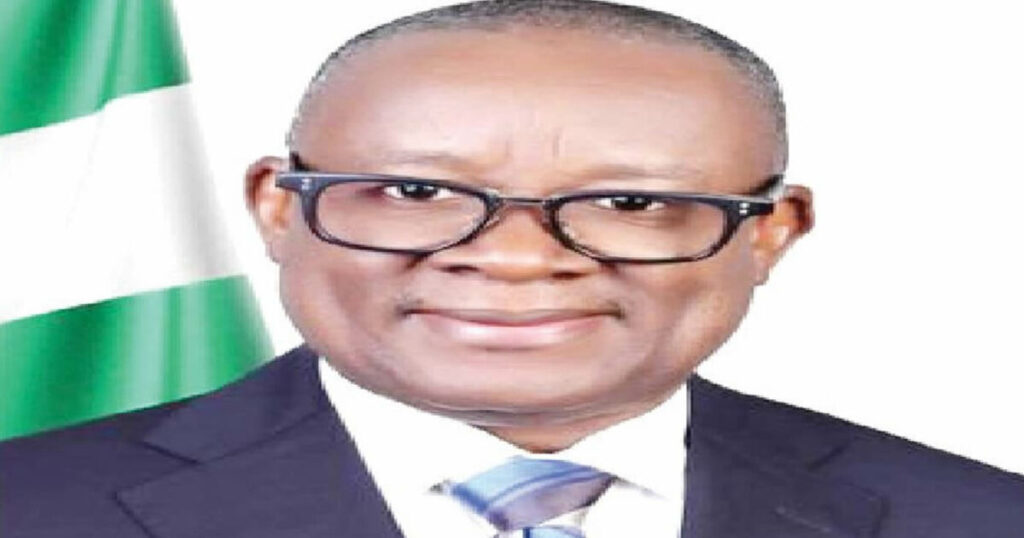The Federal Government has stated that it is intensifying efforts to increase the number of skilled automotive workers to improve the adoption of made-in-Nigeria vehicles.
The Minister of State for Industry, Senator John Enoh, on Monday in Lagos at the commissioning of the National Automotive Design and Development Council’s Training Centre at the Lagos State University of Science and Technology, Ikorodu, said the Federal Government planned to upskill automotive workers through specialised training.
Enoh noted that the NADDC initiative, which targets 21 training centres, represented a practical step in the government’s automotive policy, which is part of the National Automotive Industry Development Plan. He said, “I hope that after the 21 training centers, we will overcome the challenge that auto manufacturing companies in Nigeria face that whenever somebody leaves from Calabar and comes to Lagos and buys a Nigerian-assembled car and takes it to Calabar, the spare parts and required training skills for the adoption of those vehicles will not be easily available.”
The industry minister hailed the significance of the Lagos automotive training centre, stating that the commissioning was “to open up a new chapter in Nigeria’s industrial journey.” He noted that the driving policy, NAIDP, seeks to accomplish three things: to boost local production of made-in-Nigeria vehicles and achieve about 40 per cent local content, to generate over a million new jobs, and to reduce dependence on imports.”
Enoh stressed that the industrial policy without infrastructure would remain an aspiration. He added that NADDC’s plan to establish training centres across the country was matching policy with action, stating, “We hope that these centres will ensure capacity building, skills transfer, and technology diffusion are not just concepts but realities that touch the lives of our people.”
Director-General of NADDC, Joseph Osanipin, announced that the council had completed 16 out of 21 planned training centres across the six geopolitical zones, with three (including in Lagos) already commissioned.
The NADDC constructed six automotive training centres in the six geopolitical zones, across Benin, Edo State; Osogbo, Osun State; Lokoja, Kogi State; Bauchi, Bauchi State; Gusau, Zamfara State; and Abakaliki, Ebonyi State, at the pilot phase of the automotive training centres project.
The council said it has since embarked on the construction of additional centres spread across the country, specifically in Ikorodu, Lagos State; Umuahia, Abia State; Uyo, Akwa Ibom State; Katsina, Katsina State; Potiskum, Yobe State; Iperu-Remo, Ogun State; Kano, Kano State; Ado-Ekiti, Ekiti State; Kafin Hausa, Jigawa State; Birnin-Kebbi, Kebbi State; Gombe, Gombe State; and Minna, Niger State, to ensure that these facilities are more widespread across the country.
Osanipin explained that the training centres will catalyse job creation, stating, “The project will not only provide job opportunities for the youth, but also enhance skills among graduates and undergraduates while strengthening Nigeria’s industrial infrastructure. Our vision is to position Nigeria as one of the leading automotive manufacturing nations in the world.”
He noted that the centres would provide training for artisans, technicians, technologists, and engineers, while also supporting the federal government’s shift towards compressed natural gas-powered vehicles.
The NADDC DG disclosed that the council had already trained 47 Nigerians in vehicle conversion from petrol to Compressed Natural Gas and was partnering with TVS manufacturer Simba to train a minimum of 50 people in each state on the maintenance of motorcycles and tricycles.
Meanwhile, the NADDC Governing Board chairman, Emma Eneukwu, commended the training centre. He said the centre aligned with President Bola Tinubu’s commitment to industrial growth, youth empowerment and technological advancement.
He said, “This centre is more than a building. It is a beacon of opportunity, a platform for innovation, and a gift to future generations. It embodies the promise of a Nigeria where knowledge meets industry, and where our young people are equipped to drive progress not only within our borders but across Africa and the world.”















